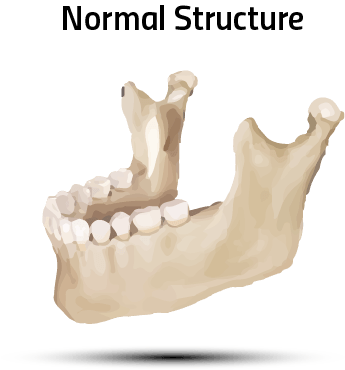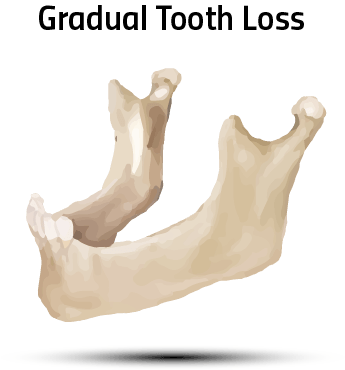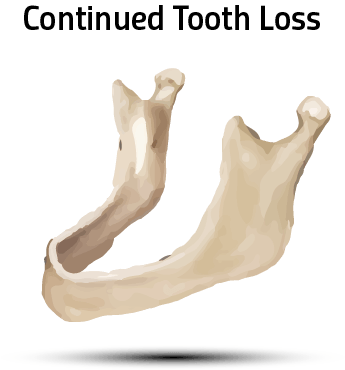1. Impaired Mastication.
One lost tooth might not affect your chewing, but multiple missing teeth certainly will. Besides being unable to enjoy your favorite foods, impaired chewing can limit your diet and compromise your nutrition. As a result, you may experience constipation, weight loss, indigestion, constipation, and rheumatism.
2. Bone Loss.
When you lose a tooth, the underlying bone collapses. Since a significant amount of the overall bone loss occurs within the first year, postponing replacement can cause substantial long-term damage. Replacing your teeth with dental implants can help prevent bones loss because the implants actually stimulate growth like natural teeth.
3. Bite Breakdown Facial Collapse.
Since most chewing occurs in the back teeth, they eventually wear down as we age. However, the additional strain caused by missing teeth can expedite this process and cause the vertical height of your face to collapse. When vertical collapse occurs, the chin shifts up towards the nose and the lips form a down-turned crease in the corners of your mouth, resulting in a perpetual frown.
4. Deformity.
It can be tempting to hold off on replacing a missing tooth if it does not initially affect the appearance of your smile. Because they can’t be seen, many people mistakenly presume that it’s not as important to replace missing teeth in the back of their mouths. As time goes on, however, the domino effect can wreak havoc on your smile and overall facial appearance regardless of where the tooth loss initially occurred. The aforementioned bone loss may cause your face to take on a “sunken-in” appearance as your lips, tongue, and cheeks no longer have the same level of support.
Dental implants can last a lifetime with proper care and can be adapted to the needs of the patient, making them an ideal long-term solution for replacing missing teeth.




